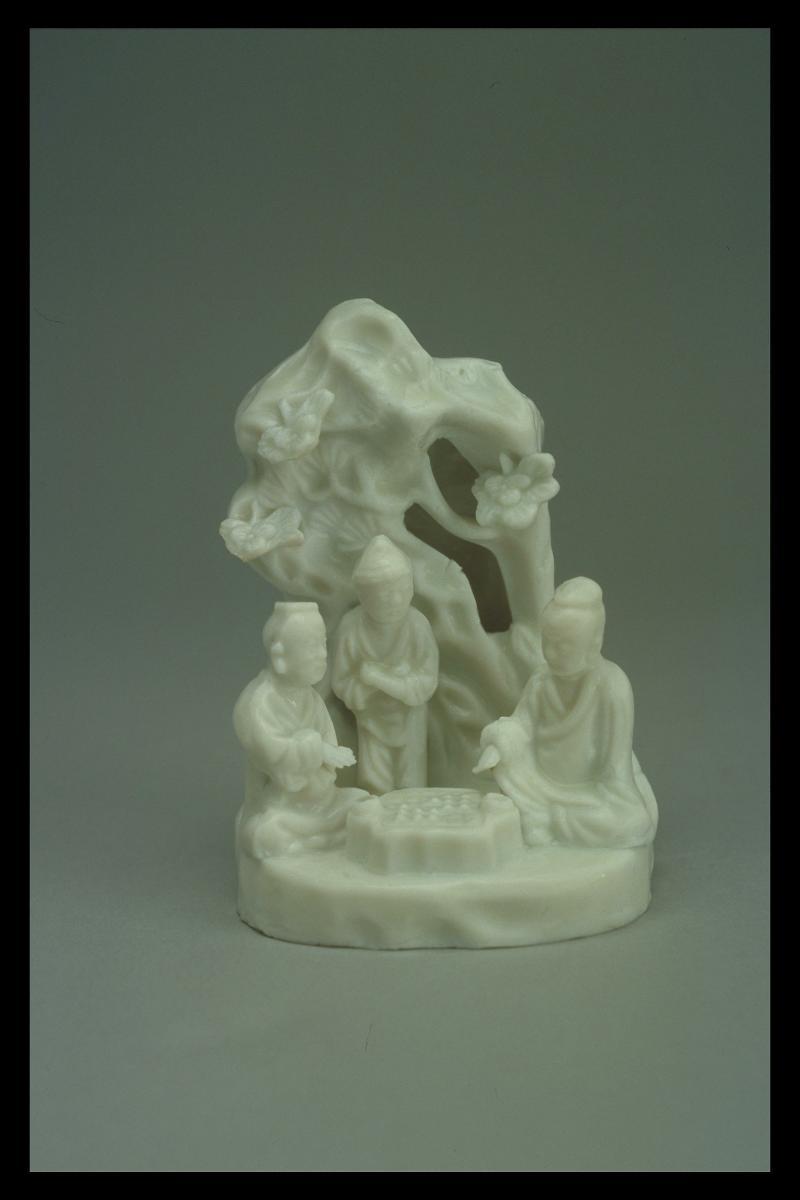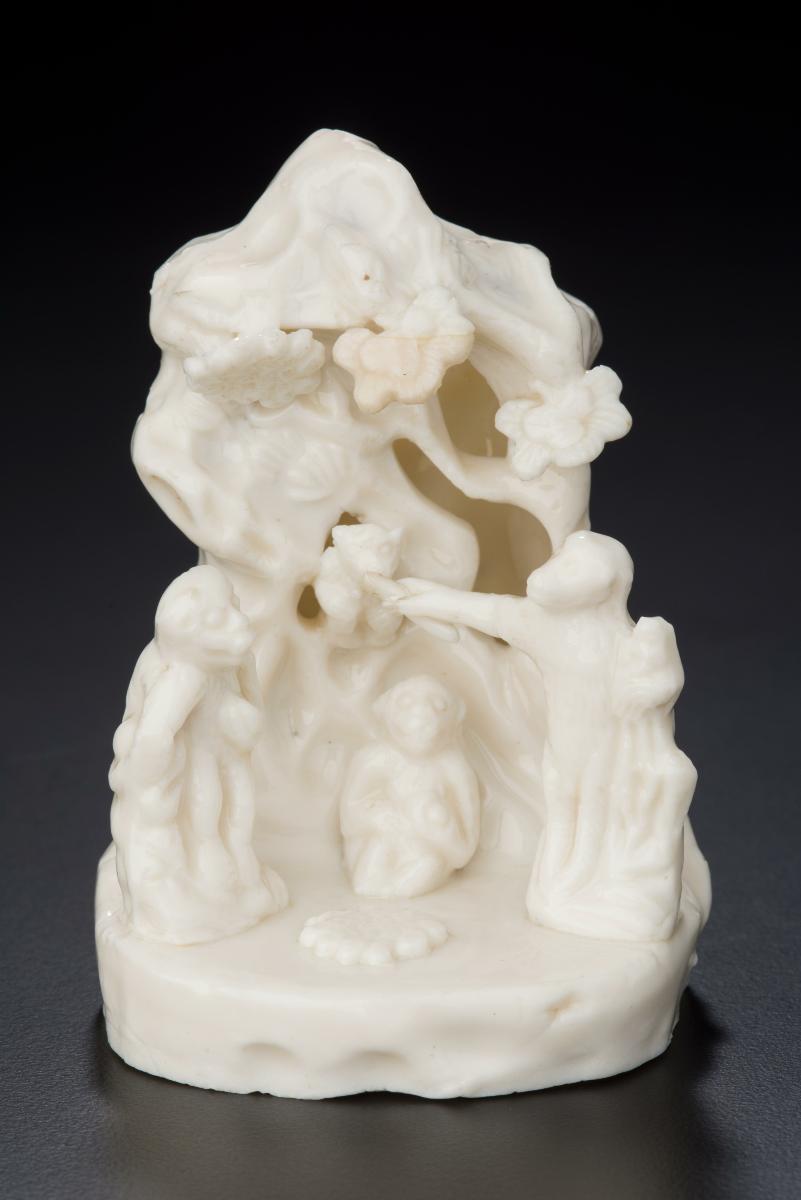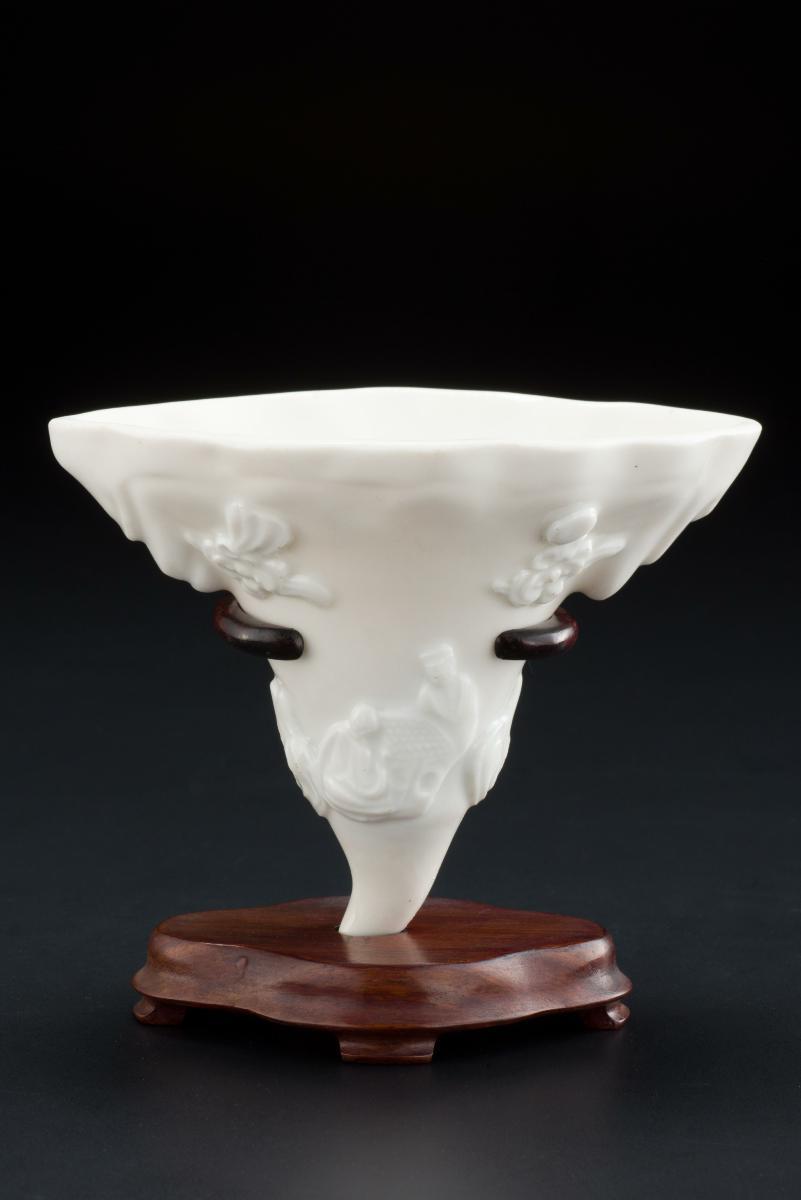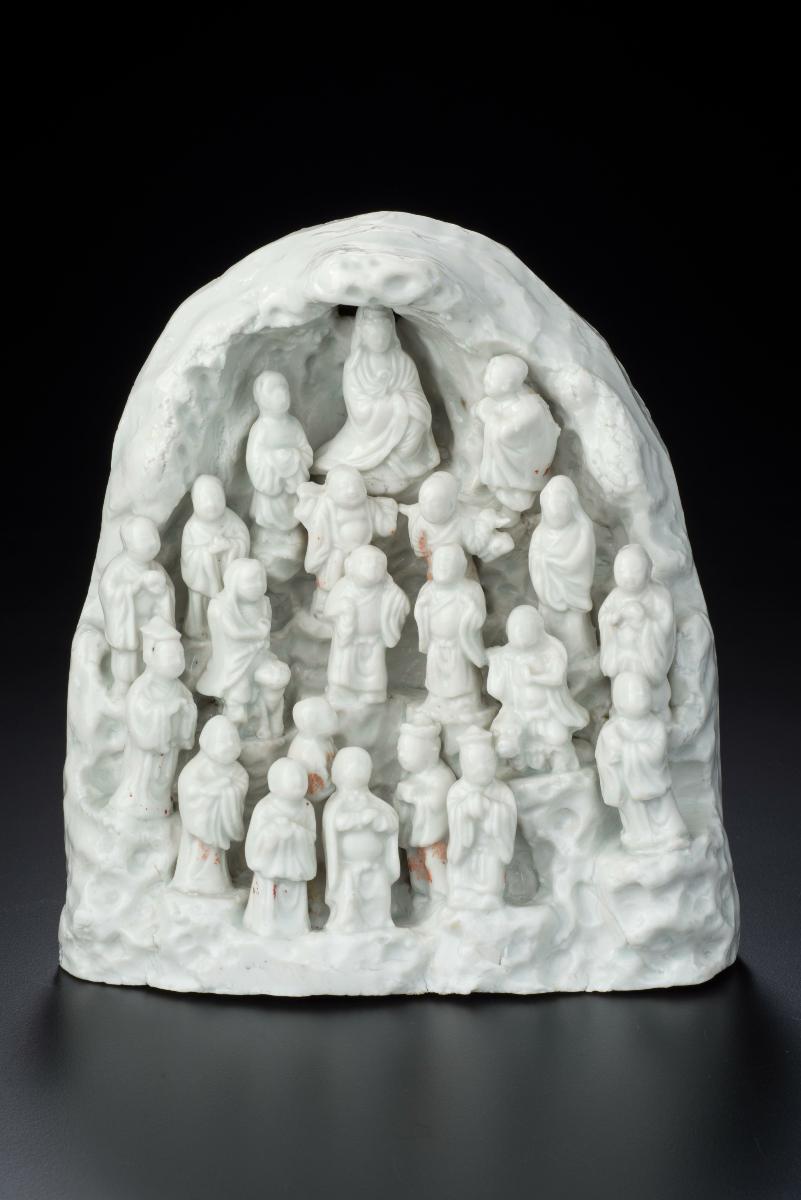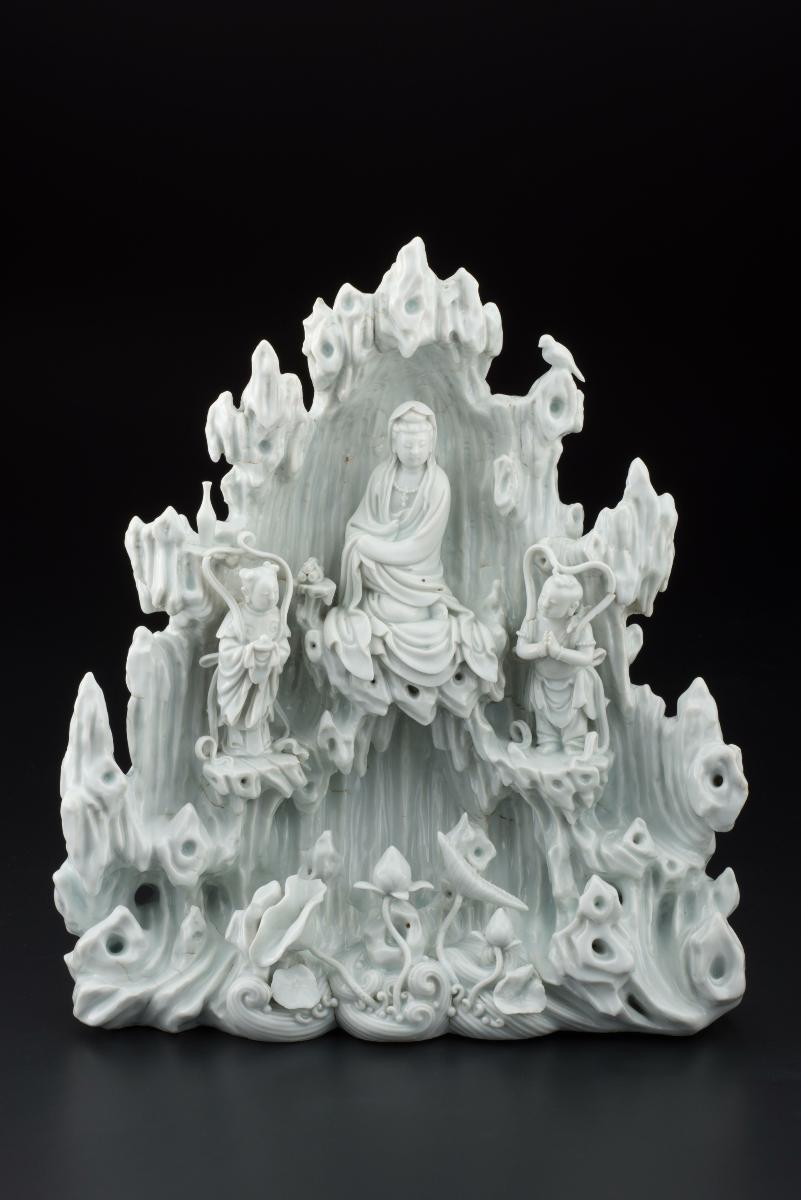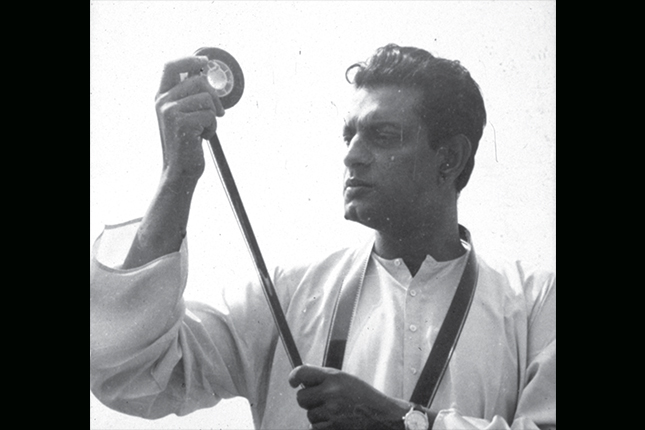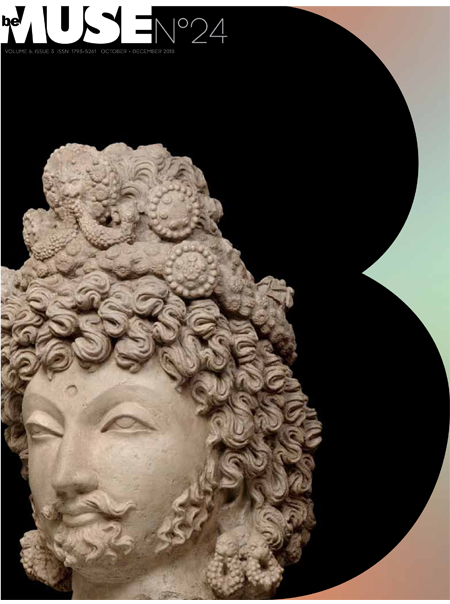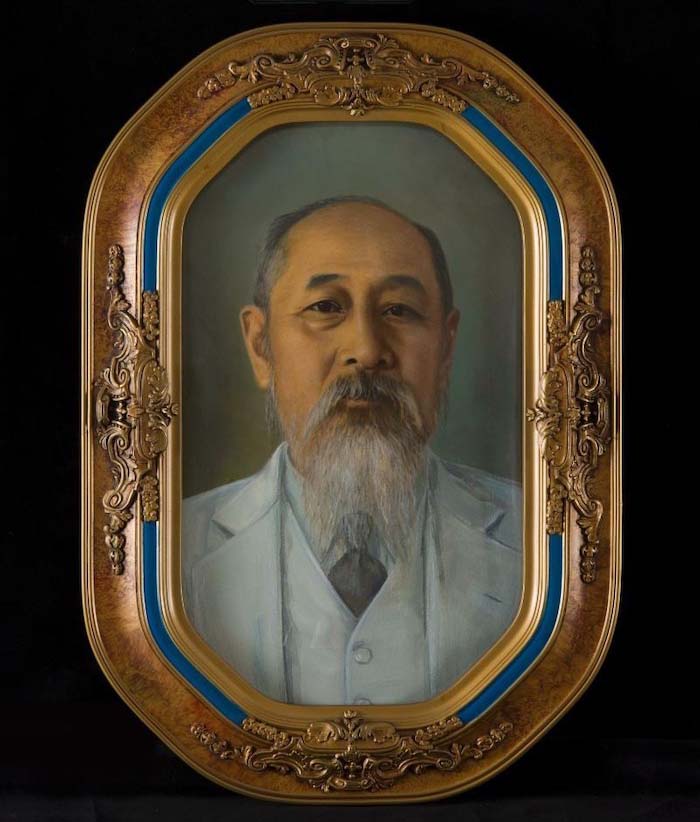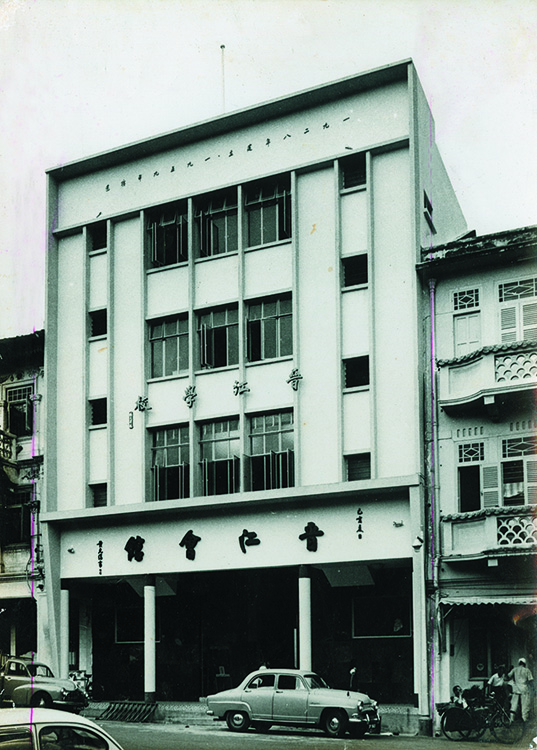This scene of two figures absorbed in a game while another figure looks on, has been interpreted as the legend of Wangzhi. It is the story of a 19 year old boy with only one more year to live. He visits the Daoist deities responsible for births and deaths (the God of the North Pole and the God of the South Pole respectively) to request for an extension on his life. After a long game of chess, they finally attend to his request of prolonging his life to 99 years. The reclusive scene of chess or 'weiqi' players in a grotto is thought to express the idyllic isolation sought by disillusioned Ming loyalists during the period of transition to Manchu rule. Weiqi was an ancient game apparently invented by the Emperor Shun (2255-2206 BCE) with the aim of improving his son’s mental faculties.Dehua, located on the southeast coast of Fujian province, is well known for its production of white porcelain, known to Europeans as 'blanc de Chine'. The earliest Dehua porcelain was produced as early as the 14th century but the production and quality of these porcelain peaked around the 17th and 18th centuries.




